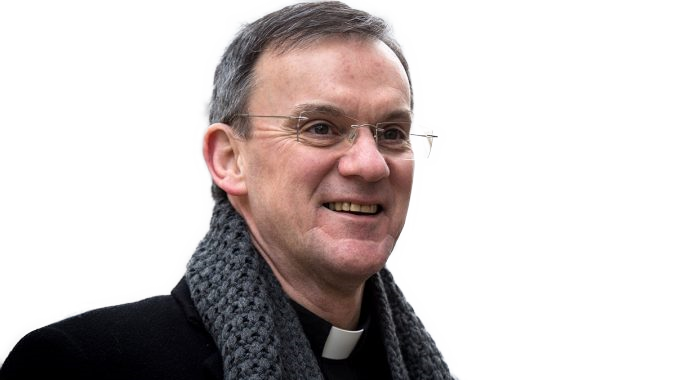
see us on Facebook @
https://www.facebook.com/stjosephmossley
07722433863

This is a Pastoral Letter on the TerminallyIllAdults(EndofLife)Bill
To be read at all Masses 5th/6th April 2025
Fifth Sunday of Lent
My dear brothers and sisters in Christ,
I wish to speak with you today about the process in which our Parliament is currently consideringlegalisingassistedsuicidethroughtheTerminallyIllAdults(EndofLife)Bill. As I have made clear earlier in this debate, as Catholics we have maintained a principled objection to this change in law recognising that every human life is sacred, coming as a gift of God and bearing a God-given dignity. We are, therefore, clearly opposed to this Bill in principle, elevating, as it does, the autonomy of the individual above all otherconsiderations.
The passage of the Bill through Parliament will lead to a vote in late April on whether itprogressesfurther.ThiswillbeacrucialmomentandI,togetherwithalltheBishops ofEnglandandWales,amwritingtoaskyoursupportinurgingyourMPtovoteagainst this Bill at thattime.
There are serious reasons for doing so. At this point we wish not simply to restate our objections in principle, but to emphasise the deeply flawed process undergone in Parliament thus far. We wish to remind you that it is a fundamental duty of every MP to ensure that legislation is not imposed on our society which has not been properly scrutinised and which will bring about damagingconsequences.
The Terminally Ill Adults (End of Life) Bill will fundamentally change many of the key relationships in our way of life: within the family, between doctor and patient, within the health service. Yet there has been no Royal Commission or independent inquiry ahead of its presentation. It is a Private Member’s Bill. The Bill itself is long and complex and was published just days before MPs voted on it, giving them inadequate time to consult or reflect upon it. The time for debate was minimal. The Committee examining the Bill took only three days of evidence: not all voices were heard, and it comprises an undue number of supporters of the Bill. In short, this is no way to legislate on such an important and morally complexissue.
One consequence of this flawed process is that many vital questions remain unanswered. Can MPs guarantee that the scope of the Bill will not be extended? In almosteverycountrywhereassistedsuicidehasbeenintroducedthecurrentscopeis wider than was originally intended. What role, if any, will the judiciary have in the process? We were told that judicial oversight was a necessary and vital part of the process; now we are told it isn’t needed at all. What will protect the vulnerable from coercion, or from feeling a burden on family? Can the National Health Service cope with assisted suicide or will it, as the Health Secretary has warned, cause cuts elsewhereintheNHS?CanMPsguaranteethatnomedicalpractitionerorcareworker would be compelled to take part in assisted suicide? Would this mean the establishment of a ‘national death service’?
In contrast to the provisions of this Bill, what is needed is first-class, compassionate palliative care at the end of our lives. This is already provided to many in our society but, tragically, is in short supply and underfunded. No-one should be dispatched as a burden to others. Instead, a good society would prioritise care for the elderly, the vulnerable, and the weak. The lives of our families are richer for cherishing their presence.
It is sad reflection on Parliament’s priorities that the House of Commons spent far more time debating the ban on fox hunting than it is spending debating bringing in assistedsuicide.
I am sure that you will share these concerns. It is now clear that this measure is being rushed without proper scrutiny and without fundamental questions surrounding safeguards being answered. This is a deeply flawed Bill with untold unintended consequences.
EveryMP, andGovernment,hasasolemndutytopreventsuchlegislationreachingthe statute book. This, tragically, is what may happen. So I appeal to you: even if you have written before, please make contact now with your MP and ask them to vote against this Bill not only on grounds of principle but because of the failure of Parliament to approach this issue in an adequate and responsiblemanner.
In his Letter to the Philippians, from which we heard in the Second Reading, St Paul reflects on the difficulties and responsibilities of life. He speaks of ‘pressing on’ and ‘striving’ for the fulness of life promised in Christ Jesus. Yet he is totally confident in his struggles because, as he says, ‘Christ Jesus has made me his own’.
We too have many struggles. We too know that Christ Jesus has made us his own. So we too press on with this struggle, so important in our times.
May God bless you all.
Vincent, Cardinal Archbishop of Westminster